As the pandemic winds down and things get back to normal, there’s one thing that’s becoming more normal than it should be – phishing, scams, and fraud. Instances of these continue to rise in the digital era – cybercriminals are getting more sophisticated and millions upon millions are being fraudulently stolen every year.
Things like phishing emails, Whatsapp scams, bitcoin scams, and spear phishing are popping up like…well, a pandemic!
We know how scary things can be when everything you click could potentially lead you to losing thousands of dollars, so we’ve written a comprehensive guide that will give you the tools you need to protect yourself (and your family) against these frightening scams.
We’ll also outline how to report these scams to the Canadian Anti-Fraud Centre to ensure more people (and their finances) are protected.
Never miss an amazing deal again + get our bonus 250+ page eBook for FREE. Join 50,000 other Canadians who receive our weekly newsletter – learn more.
What are phishing, scams, and fraud exactly?
While these words are often interchangeable, they do each have a specific sort of meaning.
Phishing
Phishing is what we call attempts to steal personal information such as passwords or credit card numbers, or to get you to inadvertently install malicious software on your device (which they can then exploit to steal your personal information, etc.).
Phishing almost always takes the form of email or other online communication from a reputable company or organization you would normally trust, such as your bank. Phishing usually results in stolen information or a compromised device.
Spear phishing
With all the information that’s so widely available, spear phishing is a new phishing phenomenon that we wish we didn’t have to report about.
You’ll remember that back in the day, everyone would get the same “I’m trapped in an African country with a boatload of money” email, all riddled with typos and reeking of fraud.
But now, spear phishing means scams are so easily customized to take advantage of specific people (possibly you!). An example of this would be a fake email that looks like it’s from your CEO – they have enough data to figure out exactly how your CEO normally writes his/her emails – and makes it as convincing as possible.
Oftentimes, they go to people who are obedient and work with him/her more. They’ll have you buy gift cards and send over the codes, taking the balance and spending it before you can say a word.
Executive phishing (whaling)
Spear phishing can go the other way too. Executive phishing targets upper-level executives and is sometimes called “whaling”. Why? Because you’re not just catching trout. If done successfully, the payout for scamming a C-level executive can be massive.
Scams
Scams don’t necessarily rely on technology and have been around for as long as humans. Scammers are usually attempting to steal money or other valuables from you directly through lies or other deception
Of course the internet has given rise to a whole plethora of new scams, including romance scams, or the infamous “foreign prince” scams. Scams usually involve you sending money or valuables to someone else.
Fraud
Fraud is also similar-but-different, and usually involves someone pretending to be someone else or using someone else’s information. Credit card fraud, for example, where someone uses your credit card information to purchase things, but leaves you stuck with the bill.
All of this aside, what are some of the more recent forms of phishing, scams, and fraud? And more importantly, how can you protect yourself against them?
The evolution of scams, fraud, and phishing
The Canadian Centre for Cyber Security groups phishing, scams, and fraud into one umbrella term – cyber incidents.
Since the pandemic began in 2020, fraudsters have gotten more brazen, and the number of cyber incidents has increased. These aren’t the simple things that have been around for decades like counterfeiting, fake emails, and people looking over your shoulder as you type the numbers 1-2-3-4 into your trusted PIN pad – things have gotten way more sophisticated.
More and more different types of scams have targeted hundreds of thousands of Canadians, and unfortunately, some of these have worked in defrauding people just like you.
You should always be aware of fishy-sounding texts or social media messages. Phishing emails are getting far more sophisticated, and all the while, WhatsApp scams and similar new acts of fraud are only becoming more common.
Here are some examples of different types of scams, phishing, and fraud so you’ll be best equipped to deal with them. We’ll go over classic scams and some of the newest types of fraud that have been popping up lately.
Charity and donation scams
In these, someone contacts you about donating to a charity or similar organization, and uses high-pressure tactics to get you to send them money immediately. Many times the charity does not exist at all, or the scammer is lying about their association with it.
How to avoid charity scams
The best way to avoid a charity scam is to ask for information in writing before donating, or to go to the charity’s website independently and donate there. Never give money to someone on the phone, or through links in an email.
You can also verify that a charity is registered through the “list of charities” search on the CRA website, but remember that this doesn’t guarantee that the person is actually associated with the charity. If you have any doubt at all, don’t give them any money or payment information, and do your own research later.
Crowdfunding scams
Many of us are familiar with the concept of crowdfunding at this point. In this type of scam a person will set up a project or donation drive, requesting money to support the creation of a product, such as a book or game, or to support a person or business in need of financial assistance.
The vast majority of crowdfunding drives are legitimate, but some are completely fabricated or the money will not actually go to the person or project it’s supposed to be for.
How to avoid crowdfunding scams
The best way to avoid these scams is to do some research before giving anyone any money or your credit card information.
Some questions you can ask yourself are:
- Is the creator of the campaign legitimate?
- Do they have anyone else trustworthy supporting their efforts?
- If it’s a product of some sort, is it realistic or does it sound too good to be true?
- Are other people questioning its validity?
Doing some research and waiting a few days before sending your money can go a long way to avoiding losing money to one of these scams.
Fake ads for health-related products
When the pandemic hit, news feeds were littered with fake news and fake ads. Anything from face masks, newfangled hand sanitizers, or unofficial home testing kits popped up and really took advantage of people who were panicking as so little verifiable information had come out at the time.
New companies also popped up by the dozens, peddling snake oil cures that weren’t scientifically proven, trying anything to get in on the windfall of gullible people.
Companies sold cheap, inaccurate thermometers, even things as crazy as fake “thermometer rings”, which are glorified mood rings that displayed bogus temperature readings instead of fun, flashy colours.
Hundreds of thousands of dollars were made by these shady companies, and though some of the people behind them were caught, many continue to operate under the shadows and make money off the latest health scare.
How to avoid health scams
Essentially, if you see a cool product with some snazzy marketing online, you should always be careful. There is never such a thing as a magical home remedy. A weird concoction of cramp bark and couch grass will not make anything go away except your hard-earned money.
Before you send away any credit card information, look into the product and for any reviews you can find online. And always look for a trusted source. A website that looks like greathealingmedicaltips.info is probably not a trustworthy source, but something from Health Canada or the CDC would be.
In addition to reporting these scams to the Canadian Anti-Fraud Centre, you can also report them to the Regulatory Operations and Enforcement Branch (ROEB).
Emergency scams
These scams attempt to get you to send money by claiming to be a friend or family member who is in an emergency situation, such as being stuck in another country, or that they have been in an accident or arrested.
How to avoid emergency scams
These sorts of scams can be difficult to handle, because we have an innate desire to help our loved ones. To avoid being scammed in this way:
- pause and do not react immediately,
- if you have one, use a known-legitimate phone number to call the person or someone who is close to them,
- verify their identity by asking questions the real person would only know the answer to,
- do not send money directly, send a cheque or money order by overnight delivery or courier so they have to verify their identity upon receipt, and
- verify the story with other friends or family members, even if they ask you to keep it secret.
With a bit of caution, you can avoid losing money in these situations, even when your instinct is to help your loved one immediately. Scammers love playing on people’s compassion.
Utility company scams
Here the scammers are pretending to be from your electricity or gas company and claim that you have an unpaid balance on your bill. They threaten to cut off your service unless you give them money immediately. Often they will tell you to call a 1-800 number to make a payment using a prepaid gift card or electronic transfer.
Sometimes scammers will come to your house pretending to be from a utility company and attempt to get in your home or to get you to sign a contract for a new water heater or the like. Never let them in your house, and never sign anything that someone brings to your door.
How to avoid utility company scams
No legitimate utility company is going to phone or email and demand immediate payment. If you receive a communication like this:
- immediately hang up if they called you,
- don’t click on any links in texts or email messages asking you to accept electronic transfers,
- never pay anyone using crypto as it could be one of the many Bitcoin scams out there,
- never pay anyone using prepaid cards, or gift cards,
- avoid sharing personal information over the phone or in email,
- verify the identity of anyone who claims to be from a utility company, and
- remember that utility companies never do door-to-door sales or inspections.
Immigration extortion fraud
Preying on recent immigrants, these scammers will call or email, telling you that you haven’t sent in or completed required documentation. They will insist that you pay the fees immediately or risk being deported, or losing your passport or citizenship.
How to avoid immigration extortion scams
Immigration extortion scams are particularly heinous because they exploit the fears of newcomers to our country. In these cases, it’s very important to remember that Canadian immigration officials will never ask you for money or threaten immediate punishment.
If you believe someone is trying to extort you:
- do not be afraid to say no, or to just hang up,
- reach out to friends and family for help, or
- call an immigration lawyer if you are still unsure.
At no point would you be expected to deal with serious immigration issues alone. Reach out to people you trust for help.
Canada Revenue Agency scams
These have become increasingly common, and involve very forceful tactics threatening jail time or steep penalty fees if you do not pay what you owe immediately. We’re all a little leery of the CRA at the best of times, so it is a very effective strategy.
Sometimes scammers will claim that you are actually owed money, such as an unexpected tax return or benefit, and ask you for personal information such as your passport number, bank account numbers, or credit card information. These are also scams.
How to avoid CRA scams
It’s important to know how the CRA does and doesn’t contact people and gather information. The CRA will call you on the phone and email you, but they will never:
- ask for personal or financial information other than your name, birthdate, and social insurance number,
- demand immediate payment by credit card or in any other form,
- use aggressive or threatening language,
- threaten to have you arrested or deported,
- leave threatening voicemails, or
- send you emails with links for payment or refunds – they will always have you independently go to the CRA website.
Credit card fraud
Credit card fraud is what happens when someone obtains your credit card information and uses it without your permission, buying things or withdrawing money and leaving you stuck with the bill.
It’s very important to safeguard your credit card information as best you can. You should also look into what policies your credit card issuer has around credit card fraud and what protections they provide.
How to avoid credit card fraud
Scammers have a wide range of tactics they use to steal credit card information, including going through your trash to find old credit card or bank statements, installing “skimmers” on ATMs or other card swiping systems, hacking into computers, sending phishing emails, and so on.
So how can you protect yourself? The most important thing is to protect your credit card information by:
- keeping your credit card in a safe place,
- protecting your PIN and keeping it secret,
- shredding your credit card and bank statements before throwing them away,
- only shop online at trusted websites, and
- never give your credit card information in email or over the phone.
If you believe you have been the victim of credit card fraud, contact your credit card issuer immediately and put a fraud alert on your credit report. If your card was lost or stolen, immediately freeze or cancel it. Also you can report fraud and cybercrime to the Canadian Anti-Fraud Centre.
Identity theft
Identity theft is similar to credit card fraud, in that someone steals your personal information and uses it for some form of criminal activity, such as:
- access your bank or credit card information,
- open new bank accounts or credit cards in your name,
- change your online passwords and information,
- rent an apartment or car, and
- the list goes on and on.
Identity theft usually happens when scammers are able to get a hold of your credit card or bank statements, PINs, passport, driver’s license, or SIN card. This can happen either in the real world or online.
How to avoid identity theft
The most important thing is to understand how valuable your information is to some people and protect it as best you can. Some of the strategies identity thieves use are:
- stealing mail out of your mailbox,
- going through your garbage looking for credit card or bank statements,
- stealing your online passwords and using those to access information you have stored online,
- among other things.
The most important things you can do to avoid identity theft are to protect your physical sources of information as best you can (shred bank statements, get a lockable mailbox), and to use different secure passwords on all your online accounts.
You can also look into a protection plan. The major credit bureaus have services where they not only give you access to your credit score and file, but they can alert you immediately if they see anything suspicious.
One such plan is Equifax Complete Premier, which includes a full suite of identity theft protection features.
Equifax Complete Premier
WhatsApp scams
WhatsApp is one of the most popular messaging platforms in the world. Though we titled this section as WhatsApp scams, these will also apply to SMS scams and other forms of fraud on other social media and messaging apps.
First off, something you should know never to do is to click on any weird links. Anything with poor English and a link should be reported as Spam (not necessarily to the Canadian Anti-Fraud Centre, but using WhatsApp’s “report” button).
Be especially careful of shortened links that can be hiding something sinister – they look like this: http://bit.ly/2RG2BD9
These could link to malware that could steal personal information from you or even perpetuate fraud by having your account send out spam messages. They could trick you into entering credit card information or get you involved in some sort of Bitcoin scam.
If you look at any of the other types of fraud we have here, WhatsApp scams could be a springboard into any of them.
How to avoid WhatsApp scams
As we mentioned before, you should never click on a link you don’t trust, especially if it comes from a weird number from out of the country.
If a friend sent it, there is a chance their account was hacked, so a good way to avoid falling for this is to contact them another way to see if they meant to send you the weird link that popped up in your notifications.
It would be good for them to know too if their account was compromised so they could immediately reset their password.
Bitcoin scams and forex scams
Some of the WhatsApp scams out there are also Bitcoin scams and forex scams. WhatsApp can be where some of these Bitcoin scams start. And since everyone has been wanting to buy crypto due to its surge in popularity, scammers are licking their lips.
What’s becoming increasingly popular lately are unsolicited messages from attractive-looking Asian women pretending to have the wrong number. Although it’s not so much a romance scam, after talking (sometimes flirtatiously), they’ll try to get you to sign up for a bogus trading group, patiently waiting for you to deposit some money.
After reading this, you should probably know. The chances of a cute Chinese girl finding you online “by accident”, chatting you up, making friends with you, and presenting you with a once-in-a-lifetime business opportunity that will make you a black card carrying billionaire?
Less than 3,720 to 1.
And you’ll find it funny – after a while, there will be a whole slew of fake Asian girls wanting to trick you into doing Bitcoin scams.
If you want to invest in crypto, just stick to better-known platforms like ShakePay or Binance instead.
Avoiding phishing, scams, and fraud: a checklist
Let’s summarize some top tips for protecting yourself against scammers.
Do some research first
Before giving anyone money, err on the side of caution and do some research. And remember to trust your gut:
- Is the person legitimate? Do they have proper identification or other credentials?
- Is the organization or charity legitimate? Does it really exist? Is it registered with the list of charities? Can you verify that it has a real, trusted website?
- Is the product or project legitimate? Are other trustworthy people talking about it? Are some people questioning its validity? Does it just feel too good to be true?
Be cautious and get help if you need it
If you’re in a situation where you think you’re being scammed:
- pause and don’t react immediately,
- say no and/or just hang up,
- verify the person or organization by calling a number you know is legitimate,
- never give out your personal or banking information by phone or email,
- never pay anyone using Bitcoin, prepaid cards, or gift cards,
- reach out to friends and family for help or advice, and
- call the police if you need help and are unsure what to do.
Protect your information
Avoid credit card fraud and identity theft by:
- getting a lockable mailbox,
- storing your bank and credit cards in a safe place,
- keeping your PIN and other credit card and bank information secret,
- shredding bank and credit card statements before putting them in the trash,
- only using trusted websites for online shopping and payments,
- never giving your credit card or bank information over email or the phone, and
- using unique secure passwords on all of your online accounts.
Reporting phishing, scams, and fraud in Canada
There are a number of different organizations you can contact if you have been the victim of phishing, fraud, or scams.
Contact your financial institution
First, if you believe someone is fraudulently using your banking information or credit cards, you should contact your financial institution. They will work with you to protect your money and accounts, and to replace your cards if needed.
Canadian Anti-Fraud Centre
The Canadian Anti-Fraud Centre exists to collect information about fraud and identity theft. If you have been a victim of either of these things, you should report it to them.
Their website is also a valuable resource for learning about past and current scams that have been reported to them, so is a great place to do some research.
Canadian Centre for Cyber Security
If you are aware of a serious cyber incident, you should contact the Canadian Centre for Cyber Security using either the email addresses or phone number on their contact page.
Contact the police
Even if the police can’t do anything to help you immediately, reporting the incident and getting a file number for future reference can help. If other fraudulent activity shows up on your statements or account activity, be sure to contact the police again and have them add that to your file. This will help you regain control over your information and protect your credit score.
For more information, you can read the government’s guide on what to do if you’re a victim of fraud.
Do you feel safe in this world of scams, fraud, and phishing?
There are always going to be people out there who want to steal your money or personal information. Hopefully we’ve given you some tips that will help you protect yourself from these incidents in the future.
Do you have any top tips for avoiding phishing, scams, or fraud?
Have you ever been in a situation where you think you were being scammed?
Let us know in the comments.
FAQ
What is spear phishing?
Spear phishing is a more advanced type of phishing that’s evolved with technology. Spear phishing hones in on the target a lot more than traditional mass-sendouts of phishing emails. Each attempt is highly customized to try to fraudulently steal money from the prospective victim.
What are some examples of WhatsApp scams?
WhatsApp scams and other social media/messaging scams are becoming more prevalent. Some examples include Bitcoin scams, romance scams, fake links that install malware, credit card fraud, and more. A lot of different scams can originate from WhatsApp.
How do I avoid credit card fraud?
If someone steals your credit card information, you could potentially lose thousands. The first thing to always keep in mind is to keep your credit card and the number embossed on it secure. Check for “skimmers” every time you need to swipe your card. Protect your PIN. Never shop on sketchy websites, no matter how good the deal. And if you are a victim of fraud, contact your bank, the police, and the Canadian Anti-Fraud Centre immediately.
Where do I report fraud?
If you are a victim of fraud or notice something fishy online, always report it to the Canadian Anti-Fraud Centre. If you’re a victim, you should also report it to your local police, and if it’s related to your finances, be sure to report it to your bank as well.
What are some of the key steps to avoid phishing, scams, and fraud?
The first step to avoiding phishing, scams, and fraud is to keep on your toes and always do your research. Ask trusted friends, seek out trusted resources like those from the government, and if anything is too good to be true, it probably is. You should always be cautious and measured when you’re unsure. Keep your personal information fully secure and always be hungry to learn about fraud to avoid becoming a victim.
creditcardGenius is the only tool that compares 126+ features of 228 Canadian credit cards using math-based ratings and rankings that respond to your needs, instantly. Take our quiz and see which of Canada's 228 cards is for you.




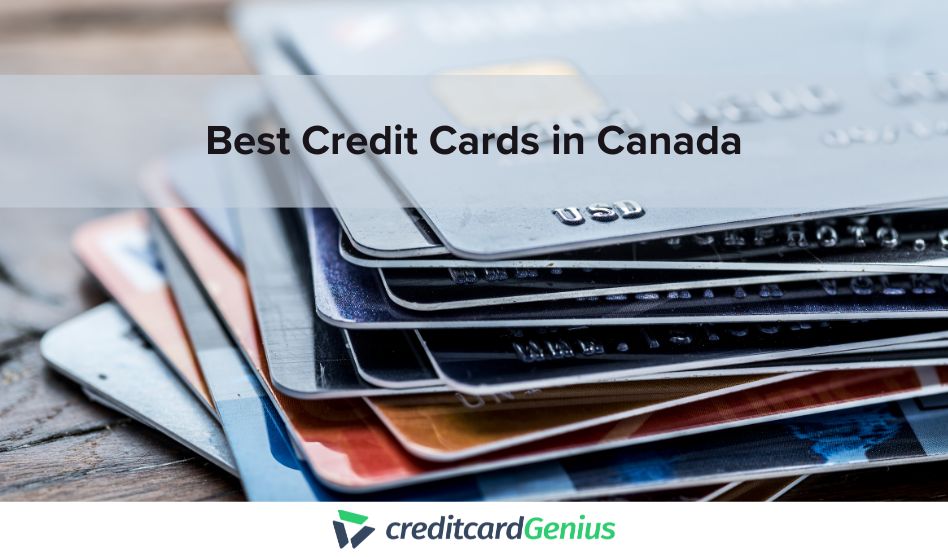
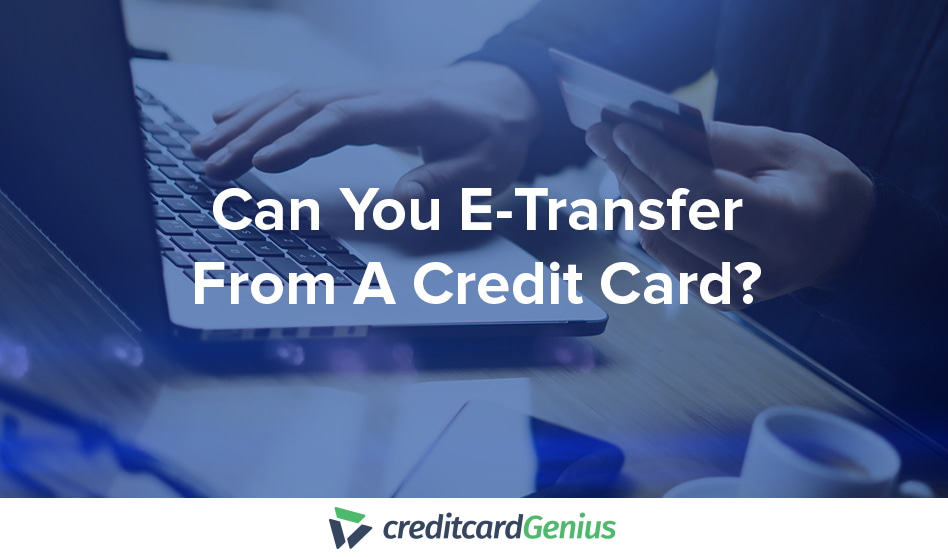
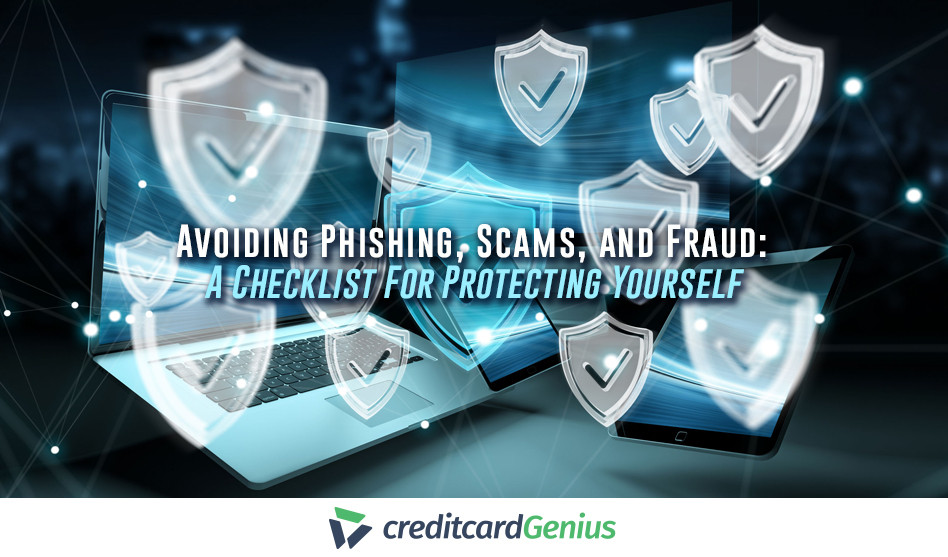


 GC:
GC: 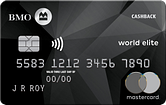







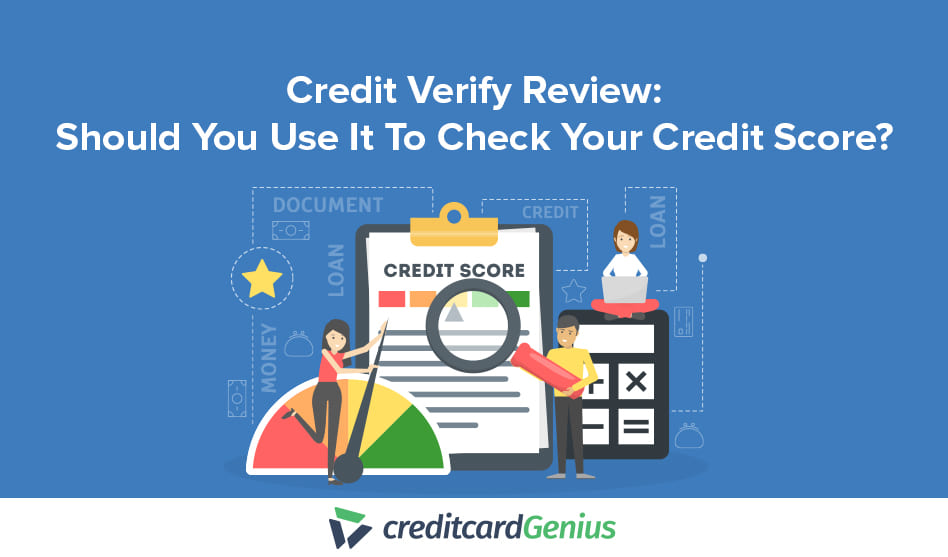























Comments
Leave a comment
Required fields are marked with *. Your email address will not be published.